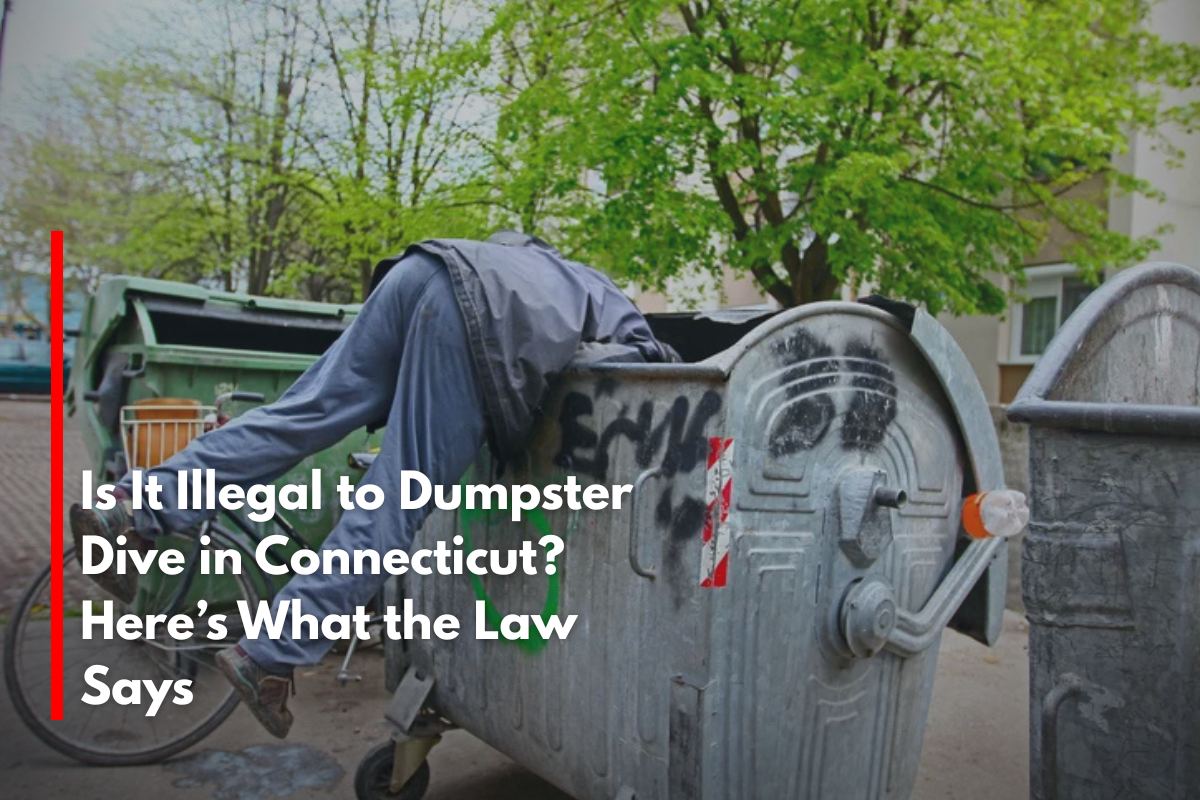Dumpster diving in Connecticut is generally not illegal, but it comes with important legal caveats related to trespassing and private property rights.
Dumpster Diving Basics in Connecticut
Dumpster diving means scavenging through trash bins or dumpsters to retrieve discarded items that may still be useful. In Connecticut, this practice is legal as long as the dumpster is not locked or on private property where access is prohibited. Since most dumpsters are located on private property, obtaining permission from the property owner is crucial to avoid trespassing charges.
Legal Restrictions and Trespassing
While the state does not have a specific law forbidding dumpster diving, the activity can become illegal if it involves entering private property without permission. Trespassing laws in Connecticut make it unlawful to access property if signs like “No Trespassing” are posted or if the dumpster area is fenced or locked. Many commercial properties enforce these rules strictly, so dumpster divers should always seek permission to avoid legal trouble.
Municipalities may also have their own ordinances that could restrict dumpster access or scavenging within their local jurisdiction, so it’s important to check local laws as well.
Issues Around Privacy and Safety
Dumpster diving raises privacy concerns, especially at residential properties. Residents may feel violated if someone rummages through their garbage, which can sometimes include personal information. Additionally, there are safety risks like sharp objects or hazardous waste that divers should be aware of when scavenging.
Legal Protections for Trade Secrets
Connecticut law specifically prohibits searching through commercial trash to obtain trade secrets or confidential business information. Under Public Act 97-110, retrieving such material from dumpsters is considered an improper method and could lead to legal consequences. This law protects businesses from competitive sabotage, distinguishing casual dumpster diving from illegal activities involving theft of business secrets.
Dumpster Diving and Local Ordinances
Some towns or cities may outlaw or regulate “scavenging” or “solid waste removal” more broadly. For example, certain municipalities prohibit scavenging solid waste expressly by local ordinance, reflecting concerns over sanitation and order. These local regulations can affect the legality of dumpster diving despite the absence of state-level prohibition.
Best Practices and Advice
Get Permission: Always obtain consent from property owners before digging through dumpsters to avoid trespassing issues.
Avoid Private Residential Areas: Dumpster diving on private residences can lead to privacy complaints or charges.
Be Respectful and Clean: Leave the area as found without litter or damage to maintain goodwill.
Avoid Seeking Sensitive Information: Don’t look for or take documents that may contain personal or business secrets to stay clear of legal trouble.
Check Local Laws: Since city or town rules may vary, check municipal codes before diving.
Dumpster diving in Connecticut is legal under the right conditions, mainly requiring that divers avoid trespassing and respect private properties. While the state law does not outright ban the practice, local ordinances and trespassing laws create important boundaries.
Divers should act cautiously, seek permission where possible, and avoid sensitive materials to stay within legal limits. When done responsibly, dumpster diving can be a practical way to reduce waste and find useful items without violating the law.
Sources
(https://www.reddit.com/r/DumpsterDiving/comments/1emnmhj/dumpster_diving_in_connecticut/)
(https://i95rock.com/is-it-illegal-to-dumpster-dive-in-connecticut/)
(https://www.legalmatch.com/law-library/article/is-dumpster-diving-illegal.html)
(https://www.cga.ct.gov/ps97/sum/sum0110.htm)
(https://www.cga.ct.gov/ps97/tob/h/hb-7030.htm)











